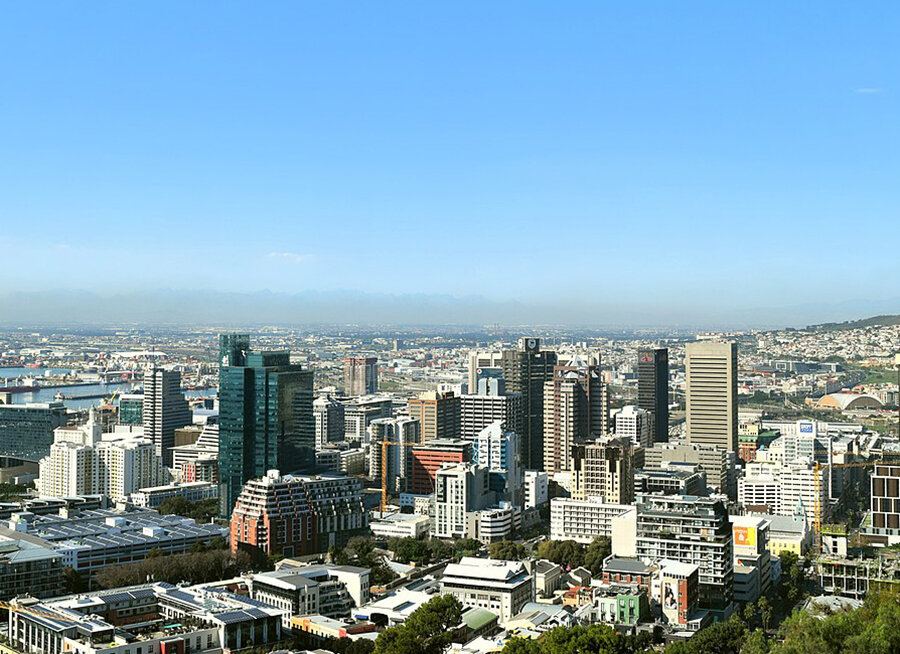read also
 Attack on Dubai, February 28, 2026: Timeline of Events and Impact on the Real Estate Market (Updating)
Attack on Dubai, February 28, 2026: Timeline of Events and Impact on the Real Estate Market (Updating)
 Russians in Israel Join Forces to Leave: War in the Middle East
Russians in Israel Join Forces to Leave: War in the Middle East
 War in the Middle East: Risks for Tourists
War in the Middle East: Risks for Tourists
 Middle East Airspace Faces Flight Disruptions
Middle East Airspace Faces Flight Disruptions
 Unexpected Destination Tops 2026 Travel Trends
Unexpected Destination Tops 2026 Travel Trends
 Norway House Prices Hold Steady
Norway House Prices Hold Steady
South African Authorities May Seize Land from Owners

South African President Cyril Ramaphosa has approved a new law that simplifies the process of land expropriation in the public interest, provided that fair compensation is paid, Bloomberg reports. The changes had been under discussion for five years, with many experts highlighting the negative consequences of the decision, including a loss of trust among landowners and a decline in investment attractiveness.
The new legislation replaces and updates an existing law that was enacted in 1975. The President of the Republic of South Africa stated that it will enable all governmental bodies—local, regional, and national—to expropriate land for a variety of reasons, “including promoting inclusivity and access to natural resources.”
The African National Congress (ANC), the country’s largest political party, proposed amending the constitution in 2017 to make it easier for the government to seize land without compensation, aiming to address racial disparities in land ownership that date back to colonial rule and the era of white minority governance.
Legal experts have argued that expropriation was already permissible under the current constitution. In 2021, the ANC abandoned its plans to amend the constitution. Analysts explained that the ruling party failed to secure enough opposition support, as critics emphasized the negative implications of such a move, including the erosion of property rights and diminished investor confidence.
At the time, the government decided to focus on land redistribution in different regions and on the law governing communal land rights. Officials also stated that a review of the reform program indicated the need for significant changes. It was noted that, under the existing legal framework and at the current pace, processing land claims from those dispossessed during apartheid would take 709 years.
In the summer of 2024, the leader of the MKP parliamentary faction, John Hlophe, warned that former President Jacob Zuma’s party, UMkhonto weSizwe, along with the Economic Freedom Fighters and other left-wing groups, would introduce a proposal in the National Assembly to amend the constitution. “We will fight for land expropriation without compensation for fair redistribution,” he said.
These parties have positioned themselves as a progressive faction opposing the coalition government, which the ANC, under President Cyril Ramaphosa, formed primarily with centrist parties. The faction also brought up past scandals, including the infamous case of $580,000 hidden in a couch at Ramaphosa’s game farm, which had been stolen. Discussions about impeachment resurfaced, although lawmakers had previously dismissed the advisory panel’s report on the matter.
Analysts noted that the leftist faction holds 102 of the 400 seats in parliament, making its attempt to change the constitution unlikely to succeed unless it gains support from rivals, as constitutional amendments require a two-thirds majority. Apparently, some recommendations were taken into account. By 2025, the situation had shifted, and the bill is now being promoted by the authorities as a positive reform.
The Democratic Alliance, a coalition partner in the government alongside the ANC, has reiterated its opposition to the bill and announced plans to challenge it. Their objections stem from serious concerns about the legal process and key aspects of the legislation. Nevertheless, as of today, property rights in South Africa have become increasingly uncertain.


